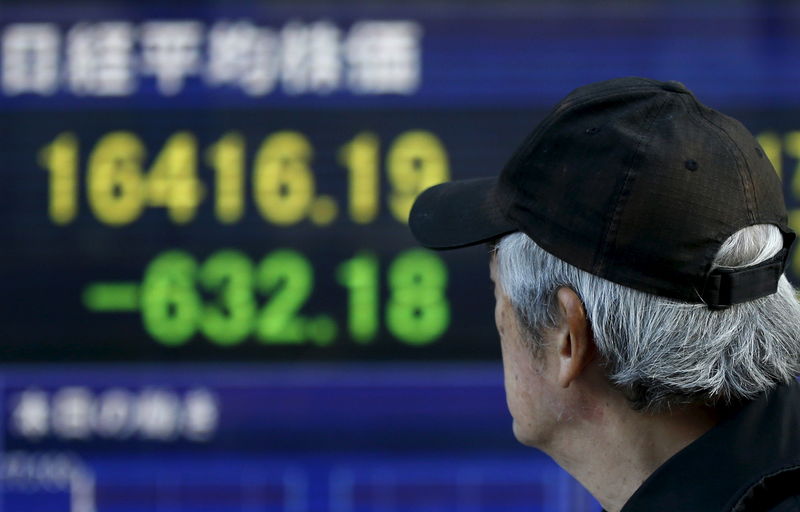By Richard Leong
NEW YORK (Reuters) - Global stock markets and oil prices rose on Tuesday in another volatile session on hopes oil producers would pare production to alleviate the supply excess that has punished equity prices and pushed oil values to 12-year lows.
Nervous investors put more money into low-risk yen, Swiss franc, gold, U.S. and German government debt as they await more clues whether the Federal Reserve and other central banks would provide support to stabilise markets that have been roiled partly due to worries about weakening economic growth in China.
The U.S. Federal Reserve is expected to leave interest rates unchanged after its two-day policy meeting, which begins later Tuesday, and signal it may not raise rates again, perhaps until mid-2016 at the earliest. [FED/DIARY]
"It's going to go back and forth, and it looks like it's going to all depend on what the price of oil does today," said Matthew Tuttle, chief executive of Tuttle Tactical Management in Greenwich, Connecticut.
Top OPEC and Russian oil industry officials stepped up vague talk on Monday of possible joint action to remedy one of the worst supply gluts in decades, though there were others, including Kuwait, who say they doubt it will happen as long as others are increasing their output.
Brent crude (LCOc1) was last up 36 cents, or 1.18 percent, at $30.86 a barrel, and U.S. crude (CLc1) was last up 21 cents, or 0.69 percent, at $30.55 per barrel.
The oil market rebound rekindled some appetite for stocks.
In early U.S. trading, the Dow Jones industrial average (DJI) was up 235.72 points, or 1.48 percent, to 16,120.94, the S&P 500 (SPX) was 20.5 points, or 1.09 percent, higher at 1,897.58 and the Nasdaq Composite (IXIC) was up 23.96 points, or 0.53 percent, to 4,542.45.
Some nervousness ahead of Apple's (O:AAPL) quarterly results later Tuesday, which are expected to show a sharp drop in iPhone sales, was mitigated by encouraging U.S. data on home prices and consumer confidence.
The pan-European FTSEurofirst 300 index (FTEU3) was up 0.5 percent at 1,329.86.
Tokyo's Nikkei (N225) ended 2.4-percent weaker, part of a broad decline across Asia.
Mainland Chinese shares <.SSEC> (CSI300) tumbled more than 6 percent to a 14-month low on renewed jitters over Beijing's ability to calm domestic markets.
The yen was initially stronger against the dollar and euro but reversed those gains with the rebound in stock and oil prices. It was last down 0.2 percent against the greenback at 118.47 yen
The dollar was weaker against a basket of currencies, last down 0.2 percent at 99.199 (DXY).
Nagging worries about falling oil prices and the global economy supported demand for U.S. and German government bonds.
Benchmark 10-year Treasury yield (US10YT=RR) dipped half a basis point to 2.017 percent, and 10-year Bund yield (DE10YT=RR) declined 2 basis points to 0.46 percent. [US/] [GVD/EUR].

Spot gold prices